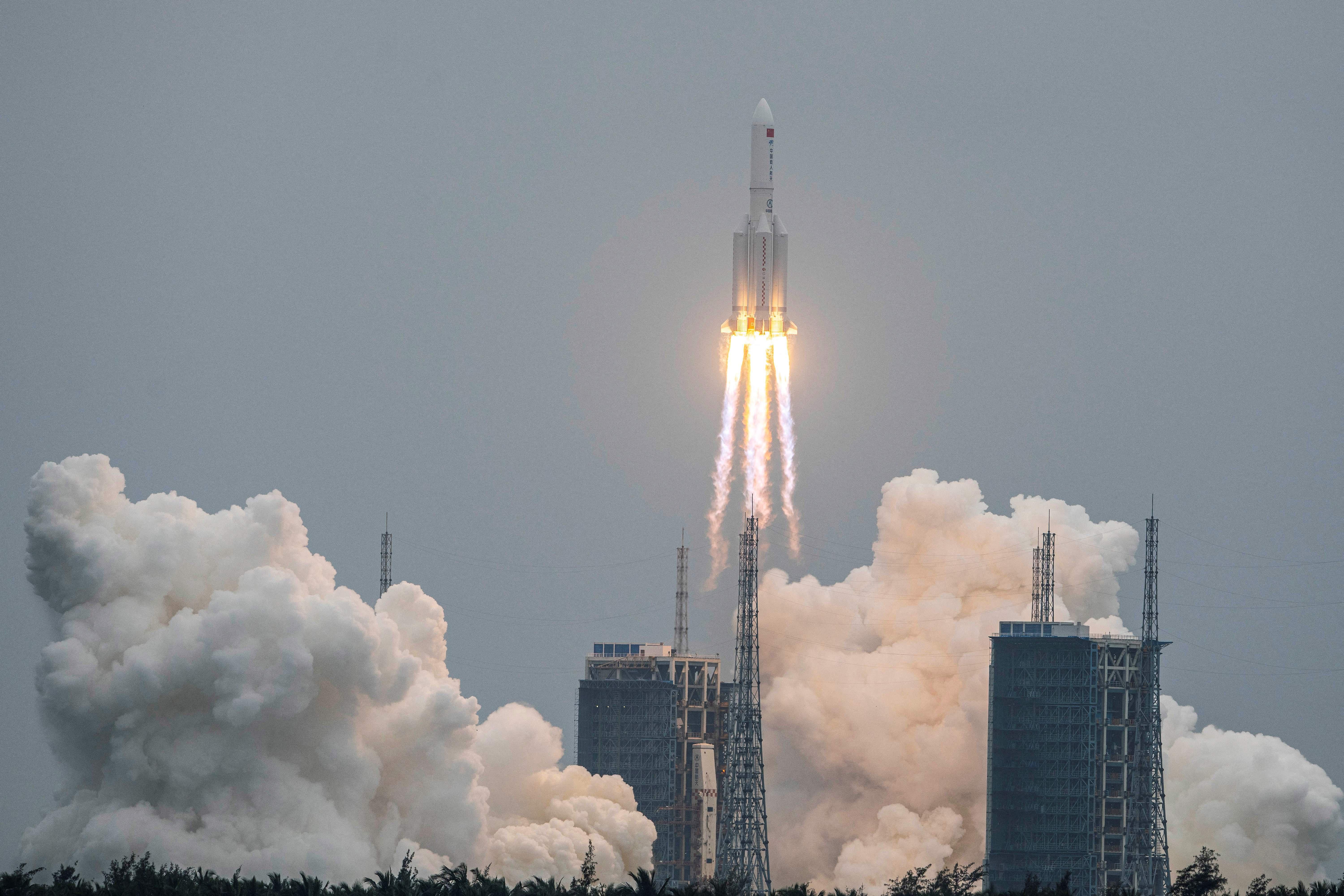UPDATE: The speculation is over and the most likely outcome became a reality. Most of the core segment from China’s biggest rocket burned up during re-entry into Earth’s atmosphere and debris landed in the Indian Ocean west of the Maldives archipelago early Sunday morning, China’s space administration said.
The coordinates of the impact were published by Chinese state media and brought a sigh of relief to all those around the world who were worried about the small possibility that the debris would rain on a populated area. The U.S. Space Command confirmed the rocket re-entered Earth’s atmosphere over the Arabian Peninsula. “The exact location of the impact and the span of debris, both of which are unknown at this time, will not be released by U.S. Space Command,” it said in a statement on its website.
All the uncertainty over where the debris would fall led to rare criticism from the administrator of NASA, Bill Nelson. “Spacefaring nations must minimize the risks to people and property on Earth of re-entries of space objects and maximize transparency regarding those operations,” Nelson said in a statement released after the re-entry. “It is clear that China is failing to meet responsible standards regarding their space debris.”
Many around the world were following the rocket’s trajectory on social media and people in Israel, Oman, Jordan, and Saudi Arabia reported seeing debris. Experts said that just because the most likely outcome of an ocean impact came to pass, that doesn’t change the fact that there was still a possibility populated areas would be affected. “An ocean reentry was always statistically the most likely. It appears China won its gamble,” astrophysicist Jonathan McDowell wrote on Twitter. “But it was still reckless.”
Original post on May 8 at 5:43 p.m.: Debris from China’s rocket launched last week are likely to hurtle back through the atmosphere late Saturday or early Sunday and where it will crash remain unclear. China’s space agency has said that most of the booster rocket of the Long March 5B rocket it launched in April to carry the first module of China’s future space station into orbit is likely to be burned up in the Earth’s atmosphere. While the debris is unlikely to fall in a populated area, there is still a chance it may happen. The EU Space Surveillance and Tracking said that while there is a “low” probability of a ground impact in populated areas, all predictions were uncertain due to the uncontrolled nature of the reentry. For now, reentry is expected sometime between 7:30 p.m. ET Saturday and 1:30 a.m. ET Sunday morning, according to the latest projections from the U.S. Space Force.
The rocket part is currently circling the earth and is moving at 18,000 mph, making it difficult for experts to estimate the reentry location of the booster rocket that weighs 23 tons and is 10 stories tall. The slim chance that the debris could fall into a populated area is raising questions about why China continues to carry out what is known as “uncontrolled re-entries” into the atmosphere. And their frequency could very well increase as China launches more missions to its new space station. This isn’t the first time that debris from a Chinese rocket poses a risk. A previous Long March 5B launch last year led to debris raining down on the Ivory Coast, which damaged several buildings but no injuries were reported. “It’s my judgment that the Chinese are negligent. China says it will probably fall in the ocean. But probably is doing a lot of work here. The last one would probably fall in the ocean, except it didn’t. It fell on the Ivory Coast,” Jonathan McDowell, an astrophysicist at the Harvard-Smithsonian Center for Astrophysics, tells the Guardian.
Despite the theoretical risk, experts insist no one should panic. “The risk that there will be some damage or that it would hit someone is pretty small—not negligible, it could happen—but the risk that it will hit you is incredibly tiny. And so I would not lose one second of sleep over this on a personal threat basis,” Jonathan McDowell, an astrophysicist at the Astrophysics Center at Harvard University, told CNN.
Beyond this specific rocket, the uncertainty over where the debris will fall is once again bringing to the forefront the issue of space debris at a time when not just countries but also corporations are increasingly targeting activities in space, notes the Guardian. “Space debris has been known for a while, but now you have more competition in space. You don’t just have two space-faring nations— the Chinese are very significant, as is the European Space Agency, among others. When you have more actors and more stuff, it gets more complicated,” said Joanne Gabrynowicz a professor at the National Center for Remote Sensing, Air, and Space Law at the Mississippi Law Center.
